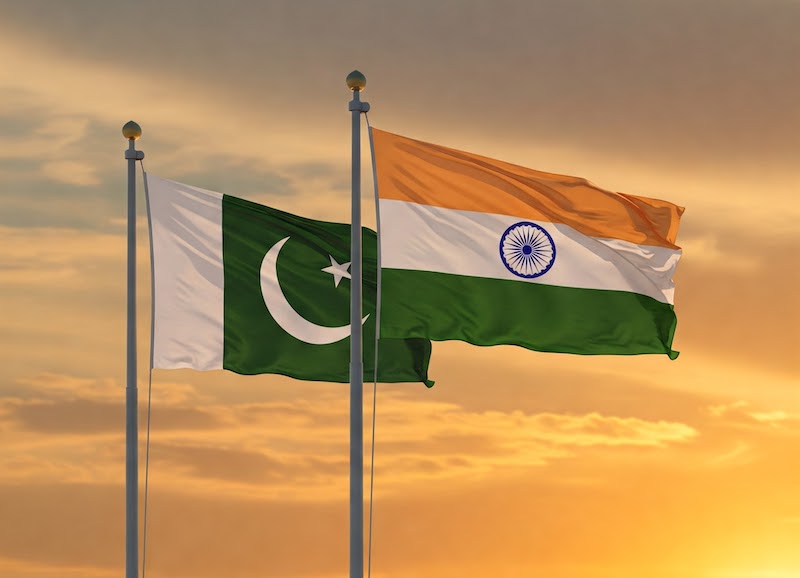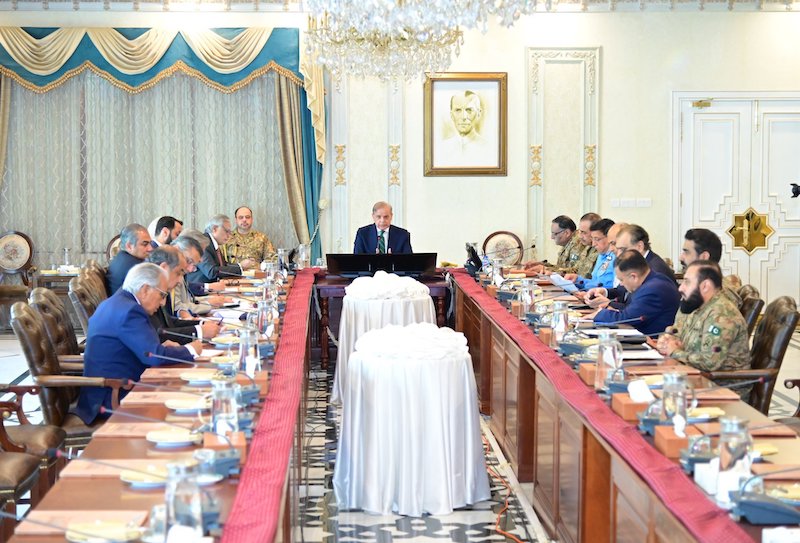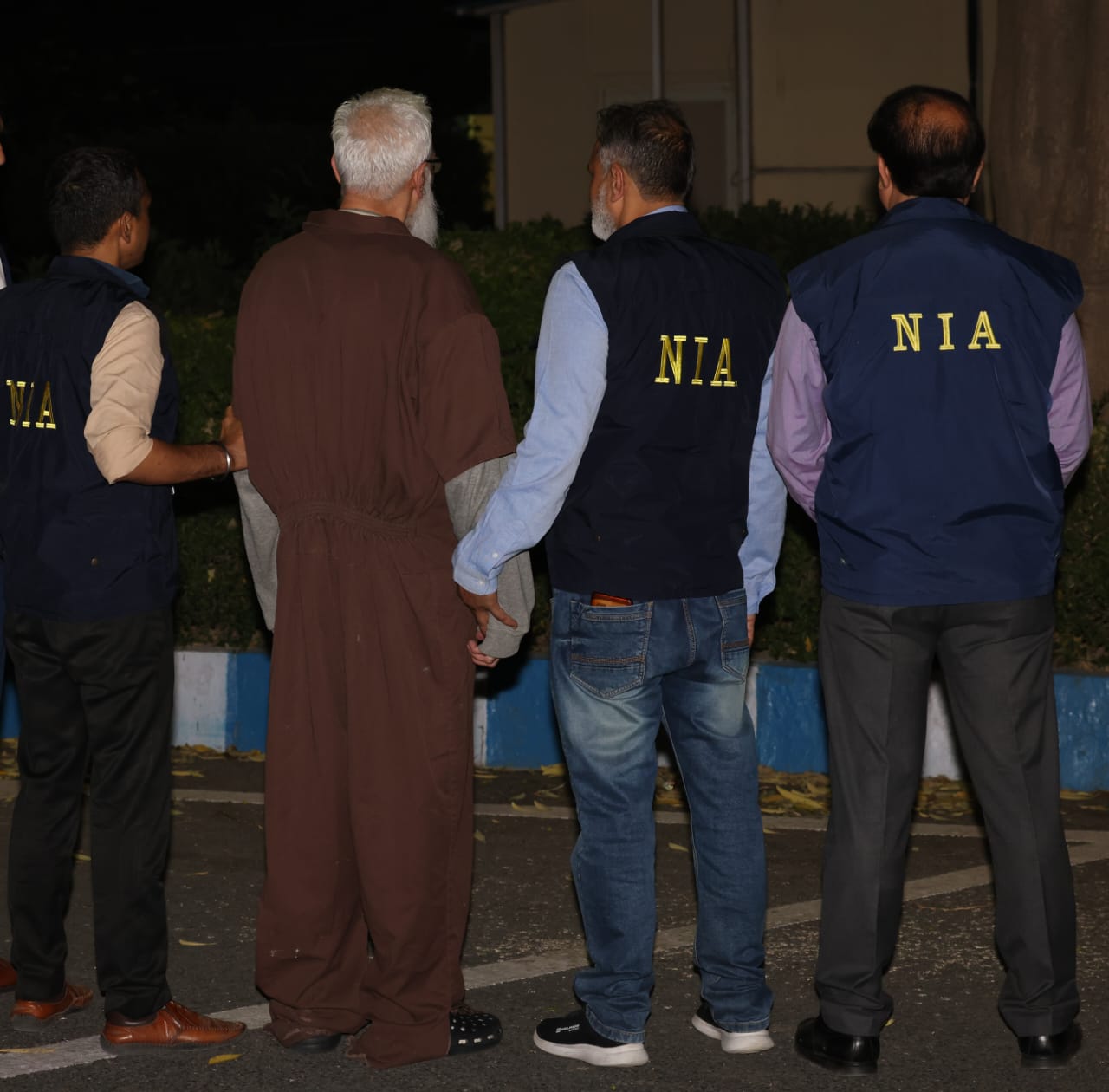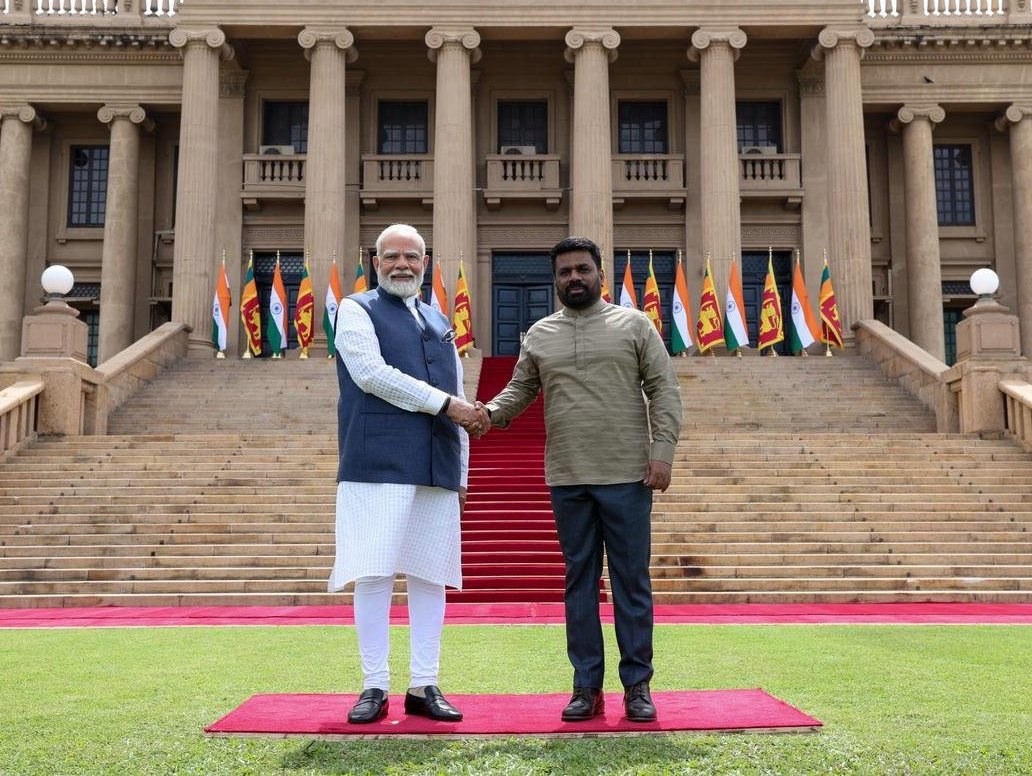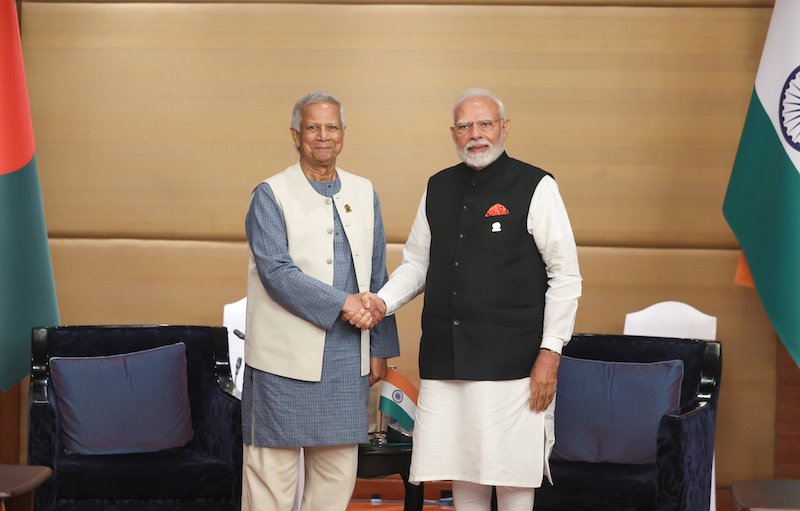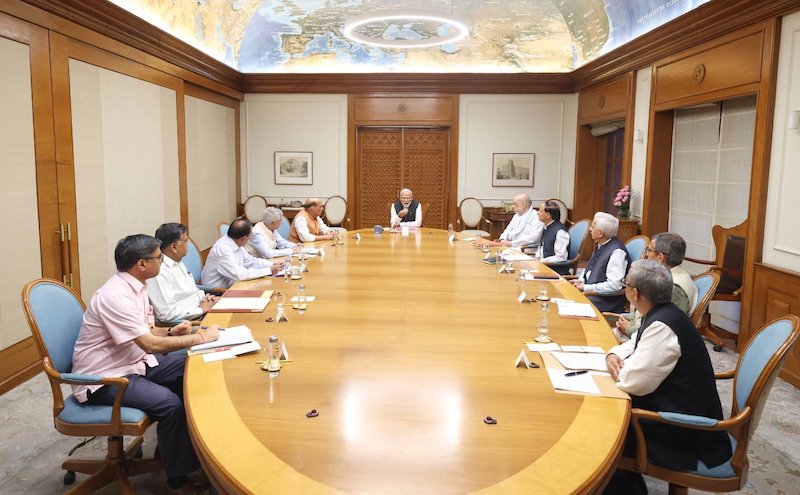 Narendra Modi (C) chairing the CCS meeting at his residence in 7 Lok Kalyan Marg in New Delhi, on April 23, 2025. (Photo: X/@narendramodi)
Narendra Modi (C) chairing the CCS meeting at his residence in 7 Lok Kalyan Marg in New Delhi, on April 23, 2025. (Photo: X/@narendramodi)
New Delhi: The government has responded with unprecedented measures to Tuesday’s deadly terrorist attack in Jammu & Kashmir’s Pahalgam that killed 28 people, including one Nepali national, and left several others injured. The attack in the Baisaran valley, targeting tourists, has been attributed to militants affiliated with The Resistance Front, an offshoot of Pakistan-based Lashkar-e-Taiba and Hizbul Mujahideen.
Modi Cuts Short Saudi Visit
The prime minister, Narendra Modi, immediately cut short his official visit to Saudi Arabia, returning to New Delhi early Wednesday morning and forgoing a scheduled dinner with the Saudi leadership. Upon arrival, Modi convened a meeting of the Cabinet Committee on Security (CCS) – the country’s highest decision-making body – to assess the situation and formulate India’s response to what is being described as the most severe terrorist attack in Jammu & Kashmir since the February 14, 2019, Pulwama bombing of a Central Reserve Police Force (CRPF) convoy.
The CCS condemned the attack “in the strongest terms” and extended its deepest condolences to the victims’ families, and wished the injured a speedy recovery. The government acknowledged the strong support and solidarity expressed by governments worldwide, which reflected a universally shared commitment to zero tolerance for terrorism.
Intelligence Reveals Cross-Border Link
Briefings to the CCS highlighted clear cross-border linkages to the Pahalgam attack. Intelligence agencies have reportedly traced the origins of the assault to groups operating from across the border, leading the government to conclude that Pakistan had a role in facilitating the attack. Officials noted the timing of the attack – shortly after peaceful elections in the Union territory and during a period of economic progress – as particularly significant.
Sweeping Measures Announced
Recognizing the gravity of the situation, the CCS, chaired by Modi, announced a series of measures aimed at holding Pakistan accountable. The foreign secretary, Vikram Misri, outlined these steps at a late-night media briefing on Wednesday. He emphasized that the actions would remain in effect until Pakistan credibly and irrevocably renounces its support for cross-border terrorism.
Historic Suspension of Indus Water Treaty
In an unprecedented move since its inception in 1960, New Delhi has suspended the Indus Waters Treaty with Islamabad with immediate effect. The treaty, which governs the sharing of the Indus river system waters between India and Pakistan, will remain suspended until Pakistan demonstrates credible action against terrorism, the government said. Misri clarified that water flows from the Indus and its tributaries – Jhelum, Chenab, Ravi, Beas, and Sutlej – would be stopped. This decision could have potentially far-reaching consequences for Pakistan, whose economy and millions of citizens depend on the waters flowing in the Indus basin.
“Recognizing the seriousness of this terrorist attack, the Cabinet Committee on Security decided upon the following measures: The Indus Waters Treaty of 1960 will be held in abeyance with immediate effect until Pakistan credibly and irrevocably abjures its support for cross-border terrorism,” Misri said.
Border Crossing Closure
India has ordered the immediate closure of the Integrated Check Post at Attari, one of the main land crossings between India and Pakistan. Only those who have already crossed over with valid endorsements will be allowed to return through this route – and must do so before May 1, 2025.
Visa Restrictions Implemented
Pakistani nationals will no longer be permitted to travel to India under the Saarc Visa Exemption Scheme (SVES). All previously issued SVES visas to Pakistani citizens have been cancelled, and any Pakistani national currently in India on such a visa has been given 48 hours to leave the country. This measure significantly tightens entry regulations for Pakistani nationals, including dignitaries, officials, businesspeople, and journalists who previously benefited from the scheme.
Diplomatic Downgrade
In a further downgrading of diplomatic ties, the defence, military, naval, and air advisers in the Pakistani high commission in New Delhi have been declared persona non grata and given a week to leave India. India will also withdraw its own defence, navy, and air advisors from its high commission in Islamabad. These posts in both high commissions are now annulled, and five support staff from each side will also be withdrawn.
Additionally, the overall strength of both the Pakistani high commission in New Delhi and the Indian high commission in Islamabad will be reduced from the current 55 to 30 by May 1, 2025, marking a significant scaling down of diplomatic engagement.
National and International Reactions
The government’s response has drawn widespread support domestically, with political leaders and civil society organizations backing the measures. Security experts have described the suspension of the Indus Waters Treaty as a “watershed moment” in India-Pakistan relations, while the downgrading of diplomatic ties is seen as a clear signal of India’s intent to isolate Pakistan diplomatically until it acts against terrorism.
Internationally, several governments have condemned the Pahalgam attack and expressed solidarity with India. The moves are likely to be closely watched by the global community, given the implications for regional stability and water security in South Asia.
The attack has left the nation in mourning, with tributes pouring in for the victims, which included an Indian Air Force airman from Arunachal Pradesh, Tage Hailyang, as India Sentinels had reported earlier. Security has been heightened across Jammu & Kashmir and along the India-Pakistan border, with authorities maintaining a state of high alert.
The government’s actions represent a significant escalation in India’s approach to cross-border terrorism and its relationship with Pakistan. Although India had taken military action inside Pakistan-controlled Indian territory and Pakistani territory following the 2016 attack on a military camp in Uri and the 2019 Pulwama bombing, this is the first time India has taken such political and diplomatic measures.
By suspending the Indus Waters Treaty, closing border crossings, cancelling visa exemptions, and scaling back diplomatic ties, New Delhi has made it clear that it will not tolerate attacks on its soil or compromise on national security. The coming days will reveal how these measures reshape the dynamics between the two neighbours and impact the broader regional landscape.

